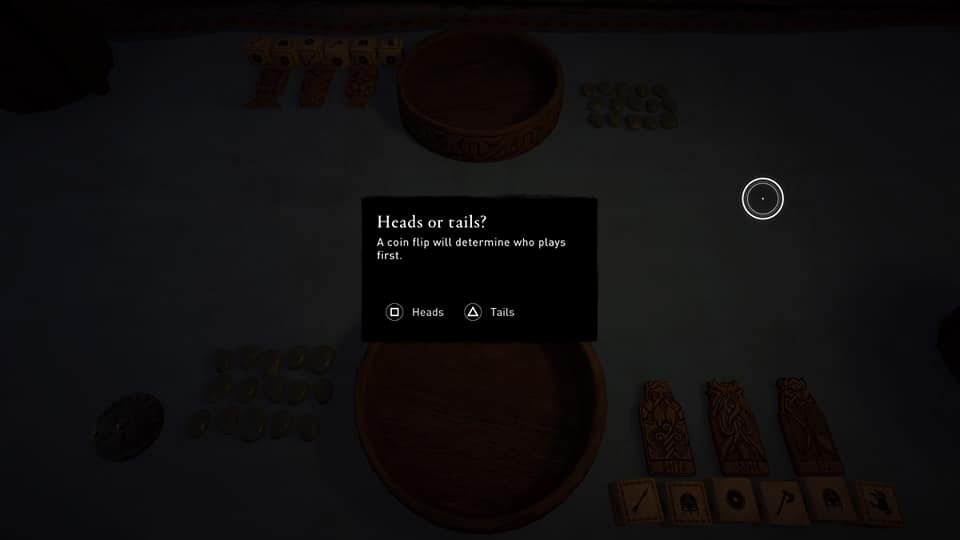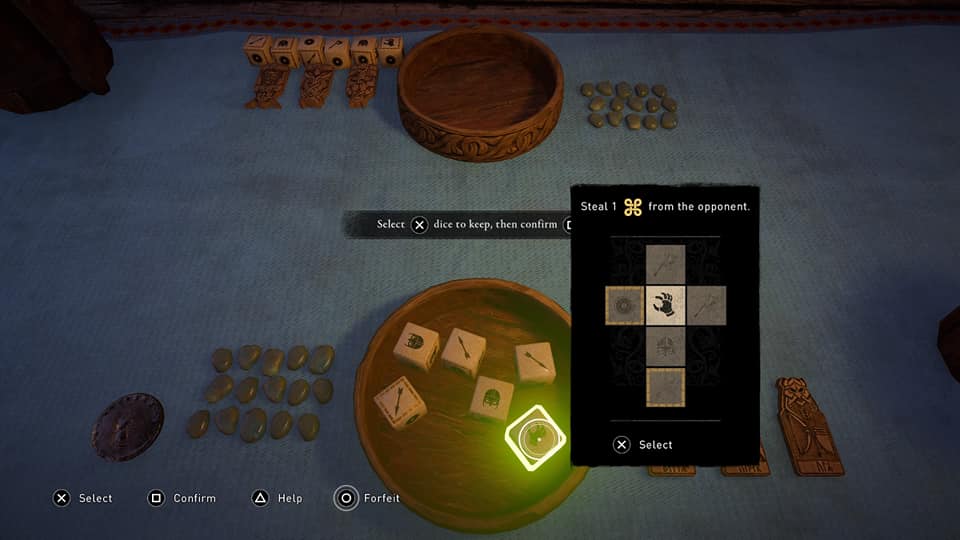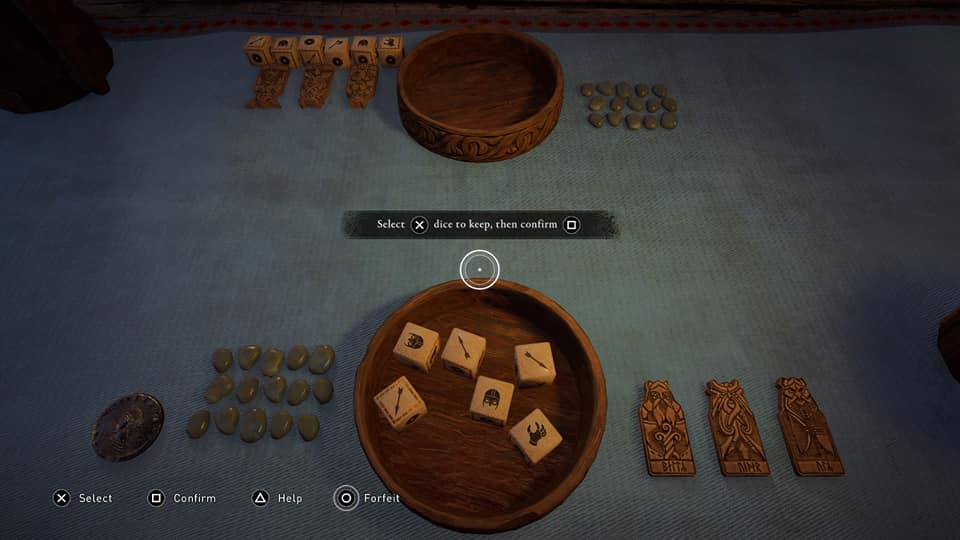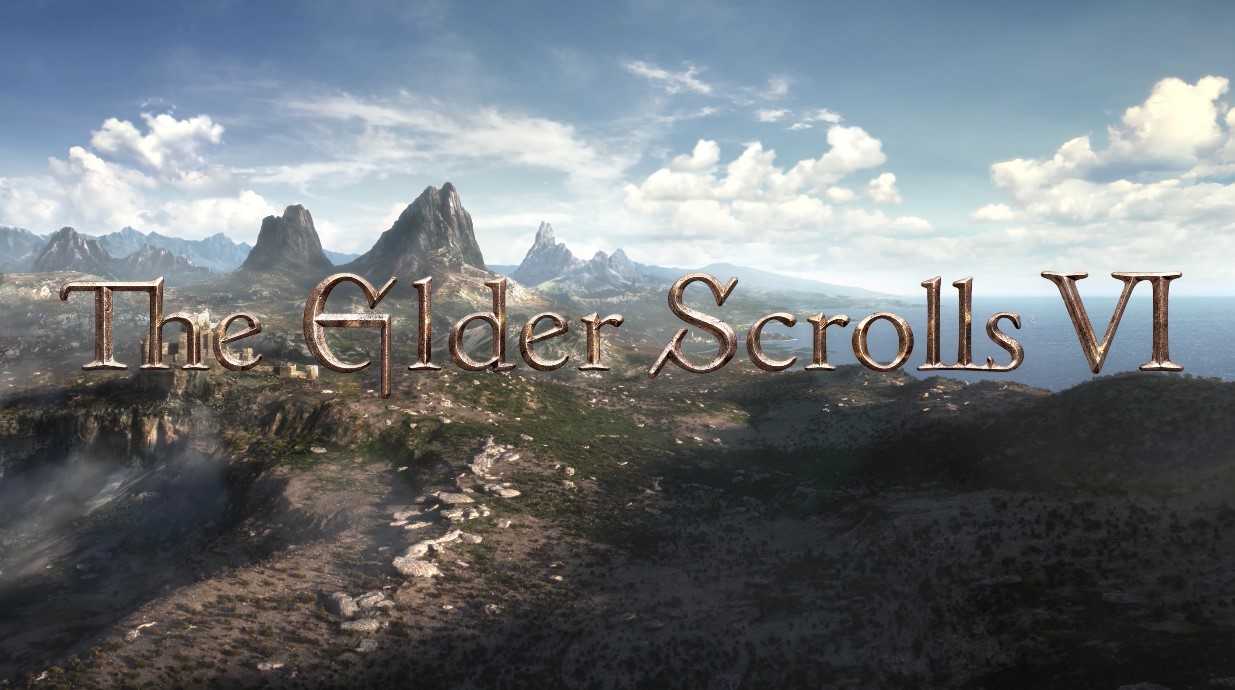Assassin’s Creed Valhalla – Newbie Guide to Orlog
By the time you read this, Assassin’s Creed Valhalla will have already been released and our review of it calls the game worthy of praise, as it successfully fills the hole that Cyberpunk 2077 has left behind. Valhalla is a massive open world with tons of activities, enemies to slay, a settlement to build, and a dice game that rivals Gwent and Triple Triad.
Orlog, a minigame that’s introduced early on in Assassin’s Creed Valhalla, represents a simple enough dice game between two combatants. No wager is made for this mini-game unlike the drinking games or the Flyt “rap battles” where you could gain or lose up to 200 silver on a terrible bet. What is wagered would be pride as an Orlog master. While high stakes mini-games in Final Fantasy VIII and The Witcher 3 really push their card games to soaring heights, I feel that Orlog is interesting enough to engage your attention while taking a break from the open world fatigue.
What Is Orlog?
It is a dice game that’s reminiscent of present day collectible dice games such as Quarriors or Marvel Dice Masters played like Magic: The Gathering, where you defeat your opponent by bringing their life down to zero. However, Orlog is much simpler than that with basic mechanics and the implementation of God Favor to turn the tide.
You and an opponent have a set of 6 six-sided dice (6D6) where in a round you would roll thrice to get the desired outcome. The faces of the dice are as follows: Axe (representing melee), Arrow (representing ranged), Helm (melee defense), Shield (ranged defense), God Favor (which is reminiscent of the above faces but with a God Favor modifier), and Thief Glove (representing steal).
Your goal is to reduce your opponent’s life from fifteen to zero, represented by Life Tokens. Every round, you roll the dice and with the results received, you calculate what’s remaining on your life tokens at the end of each round. The moment a player’s life tokens reach zero, it doesn’t matter what turn they are in, they immediately lose.
Game Phases
The game starts off with a flip of a coin to determine who goes first. Once that happens, thus begins the Roll Phase where whoever has initiative would roll their first round, select the dice they want to keep and defers to the other player. The other player does the same and passes it back. This happens a total of three times until each player has a set of six dice they’ve chosen or the Nornir have chosen for them.
God Favor Phase begins as each player could call upon a God Favor represented by the God Token on the board. The effects vary from damage dealing, healing, or damage prevention. One thing you have to note is the effects’ priority. A Priority 4 effect would occur during the succeeding phase (Resolution) and a Priority 7 would occur at the end of the round.
Resolution happens immediately, where both players collect God Favor tokens, damage dealing completes, tokens stolen from each other, and any remaining God Favor resolves. If both players still have remaining Life Tokens, the game continues to the next round. As I said earlier, the moment someone loses all their life tokens first regardless of the turn would immediately lose.
Just to reiterate, Helm blocks Axe, Shield blocks Arrow, Steal takes God Favors away from opponent and add it to you own (and vice versa), and if you’ve drawn God Favors, you get tokens to be spent on specific effects. If nothing blocks Axe and Shield, player receives a point of damage per attack unblocked. First one to zero loses. Got it? Good.
Newbie Strategy
So it seems quite complicated and it took me a while to get the hang of it. One thing you have to take particular note is how you manage your God Favor tokens. You start off with Thor’s Strike, where you spend your tokens to deal direct damage to your opponent at the end of the round. So collect as much of them and then when you can deal as much damage as you can.
The first two rounds would be your opportunity to collect God Favor tokens. Whether you steal it or you gain it from your rolls, the goal is to collect as much as possible. Between 8-12 is optimum before using them. Right now, the moment you can deal 5 damage at a time with Thor’s Strike, it would be your best strategy. A good ratio on the first round is a 4 God Favor and 2 Steal. That way, if your opponent’s strategy isn’t determined by their accumulation of God Favor, you’re able to secure at least six this round.
In the second round, you have to be more strategic. If you’ve collected quite a bit of God Favors, your opponent might want to steal some of your stash, so you could counter their steals with some steals of your own. That way you reduce their capacity of casting powerful God Favors that come your way. At this point, you would probably have dealt between 3-6 damage depending on what you’ve rolled to accumulate said God Favor.
On rounds three and four, that’s when the skirmish begins. I would suggest to attack when you have initiative and defend (accumulate God Favor) on your off-turn. Shields block arrows and helms block axes. It’s simple enough. Whatever damage isn’t blocked, your life tokens will soak. While it is tempting to go for a greedy play and launch six axes or six arrows at the opponent, they could also be doing that to you. So mix it up by countering what you can and keep them guessing what your offensive strategy might be.
Rounds five to seven, maybe eight, is your endgame. At this point, if you’ve launched a conventional game, you would be reaching the end of your life tokens. This is when you launch your final moves, be it going for direct damage or a savage beat down of attacks. At this point, whoever has the best strategy wins.
May The RNG Be In Your Favor
To curb bad rolls, some God Favor effects actually work to your advantage. Ullr’s Aim and Vidar’s Might remove defensive measures allowing for your attack to go completely unchecked. It’s great to turn the tide of battle or gain a decisive advantage. You can equip three God Tokens at once and with that you can keep your opponent guessing what move you will do next.
As you progress through the game facing more challenging players, your God Tokens will vary. Heimdall’s Watch and Baldr’s Invulnerability become great sideboards when you meet tricky opponents with varying strategies. A direct damage opponent could be thwarted with Heimdall’s Watch as you could heal blocked attacks delaying your demise. While aggressive opponents who love attempting an overrun strategy could be thwarted by Baldr’s Invulnerability, blocking their attacks with a single defensive die.
You could also turn that around if you’re on the defensive by going on the offensive while blocking their attacks with a single defensive move on both ends with Baldr’s Invulnerability. The strategies just vary. Sometimes a well timed Thor’s Strike would end your opponent right away or a last minute heal with Idun’s Rejuvenation would extend the game beyond your opponent’s expected endgame, wasting their resources.
Low Stakes Enjoyment
I see Orlog as something to pass the time with when you’re feeling lazy to do the grind. I actually like it because most Open World games streamline everything into one big collect-a-thon where you have to do everything in order for you to “reap maximum enjoyment” from an Open World Game.
If the trends are to be believed, game developers are seeing the fatigue building up among their players and they’re willing to change that. Ghost of Tsushima allows players to just roam the fields and take baths in hot springs, reflect on life with haiku, and find pillars of honor to best represent their ideal warrior. There is a gamut of activity on Assassin’s Creed Valhalla and Orlog is one way to cut through that fatigue and just take your mind away from your settlements, there’s more time for that later.
I ranked it as a top-ranking personal favorite with other mini-games in video game history because it subverts the high stakes expectations required from mini-games. Mini-games exist as a way to take a break from the main game that devolved into high stakes events to acquire endgame benefits. Games these days have become a second full-time job for many gamers, myself included, and we can blame Final Fantasy for that stinking pile of BS. Mini-games like Orlog returned to being actual breaks to help reclaim enjoyment from open world stress. 2020 is tough enough, we don’t need to create artificial stress to add to the craziness.
As a personal note to our readers, stay healthy, take care of yourselves, and whatever you’re playing– May your crits connect and your RNG be ever in your favor.











